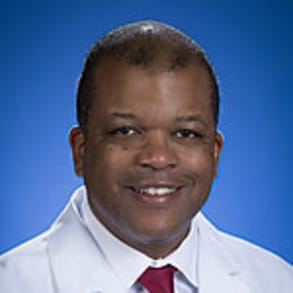As radio host Rush Limbaugh announces diagnosis, a UC Davis Health expert urges patients to get screened
SACRAMENTO) — Radio host Rush Limbaugh shocked listeners this week when he announced, “I have been diagnosed with advanced lung cancer.” The 69-year-old said he went to the doctor after experiencing shortness of breath on January 12. He will take time off work as he receives treatment.
Lung cancer is the leading cause of cancer death in the U.S., according to the Centers for Disease Control (CDC). Tobacco use, especially cigarette smoking, is the leading cause of lung cancer. However, experts say nonsmokers can still be at risk.
David Tom Cooke, head of cardiothoracic surgery at UC Davis Health, answers commonly asked questions about lung cancer, its symptoms and treatment for patients.
How common is lung cancer?
Lung cancer is the number one cancer killer in the United States. It kills more men and women than colon cancer, prostate cancer and breast cancer combined.
Are both smokers and nonsmokers at risk?
Yes. Unfortunately, all you need to get lung cancer are lungs. People with heavy tobacco exposure are at highest risk for developing lung cancer. But 20 percent of lung cancer is caused by non-tobacco exposures, including the environment and genetics.
What are the symptoms of lung cancer?
Some symptoms are generic or nonspecific. That can include a new cough, new wheezing, coughing up blood, shortness of breath and losing weight. Unfortunately, the majority of patients who are diagnosed may not have symptoms. But among the highest risk patients who have heavy tobacco exposure, we now have lung cancer screening with low-dose CT scan, also referred to as low-dose CAT scan. And that definitely saves lives.
Who should get lung cancer screening?
There are millions of people who are eligible for lung cancer screening. Unfortunately, of the people in the U.S. who are eligible, only four percent get screened. Compare that to mammography for breast cancer, where 70 percent of women who are eligible get screened. That’s a huge gap that we want to overcome. If you think you might benefit from lung cancer screening, ask your doctor if you should get screened.
How is lung cancer treated?
The diagnosis of lung cancer does not mean an absence of hope. At UC Davis Health, we have many treatments to help our patients and their families to fight lung cancer and get our patients back to the lives that they want. Those interventions include tobacco recovery and cessation programs to help people quit smoking, innovative robotic surgery to remove lung cancer, and a robust slate of clinical trials that use personalized medicine and immunotherapy to boost your immune system to fight lung cancer.
Learn more about the UC Davis Comprehensive Cancer Center.
Related Presenters
Associate Director Cardiothoracic Robotics Program
Associate Professor; Head, Section of General Thoracic Surgery
Program Director of the Cardiothoracic Surgery Residency
Task-Force Chair Comprehensive Lung Cancer Screening Program
Dr. Cooke specializes in general thoracic surgery, thoracic oncology, surgical treatment of malignant and benign esophageal disease, video assisted thoracic surgery (VATS) and Robotic surgery with special interest in Robotic pulmonary ...



